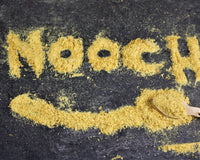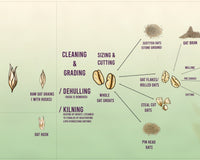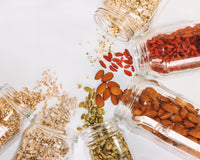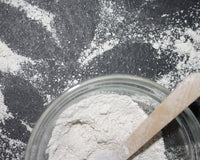At Wholefood Earth, we want to inspire you to discover new things for your cooking and baking by constantly expanding our offer with new ingredients and flavours. We source and purchase fresh quality herbs and spices, most of which are organic. We have brought unique and hard-to-find ingredients of the best quality to our whole foods store. Our rare herbs and spices are available to buy online and in bulk. Before you learn to cook meals with more flavour(s), you must learn how to buy the best herbs and spices and how to store them. Here's a little guide we've prepared for you.
Essential herbs and spices you should have in your kitchen pantry
This is just a shortlist for beginners. These herbs and spices are the most popular and often used in different cuisines and recipes. Of course, the list could have been much longer, but this is where you should start.
Herbs
- basil
- parsley
- thyme
- rosemary
- oregano
- chives
- dill
- sage
Spices
- black pepper
- paprika
- cinnamon
- cumin
- ginger
- turmeric
- chilli
- coriander
- allspice
Storage tips for herbs and spices
There are some ways you should keep your spices organised to keep them best for the longest and always have them at hand. Store your spices in a jar or can in a clean, dark, dry cupboard or drawer. You can also store them on a small shelf on top of your kitchen counter, where they will be easy to access.
Avoid storing your spices on top of your cooker. This is where the steam goes each time you cook. Spices and herbs don't like humidity and heat. There, they may get mouldy quickly and lose all the aroma.
When you open a new spice bag or jar, use a marker to note the date. This way, you will always know how old your spices are and if they're still good before you throw them away. How do you check if your seasonings are still good? Just smell them, and you will know!
Quality of herbs and spices matters
Remember, much cheaper herbs and spices are also of worse quality. Things are cheaper for a reason! Always buy quality and organic herbs and spices whenever possible. Non-organic cheap dry seasonings may contain some nasty ingredients you would not like to eat or even hear about! Shall we name a few? Mould, insects, rat hair, microplastics, string... etc.
Buying spices in a specialist shop
Supermarkets are not the best places to buy your seasonings. Dried herbs and spices on the shelves of your supermarket or grocery store may have been there for a very long time - even a few years before you buy them! And before that, they were stored in a warehouse for a long time. Although the average shelf life of ground spices is quite long (1-3 years), chances are that you're buying spices that are not very fresh and they will lack the aroma and flavour they are supposed to provide. Plus, depending on where you live supermarkets will have limited spice selection. Ethnic shops, organic shops, or wholefood shops specialise in real more natural food, and they will have the best choice of herbs and spices for cooks and food lovers.
Which spices have the longest shelf life?
Whole spices like peppercorns, whole chilli or whole cinnamon and nutmeg have a long shelf life, and these you will more likely find in specialist shops. If you cannot find a spices specialist in your area, consider buying them in an online store specialising in health foods, like Wholefood Earth.






